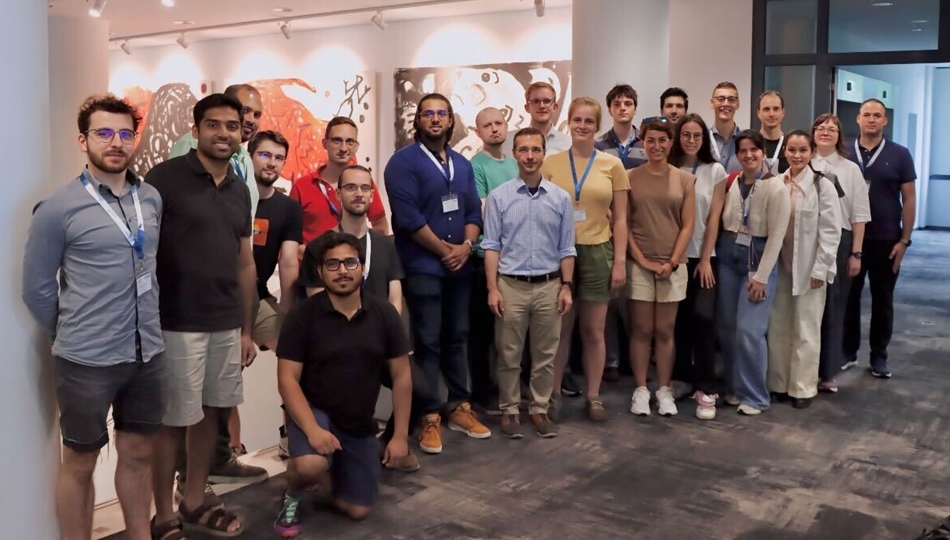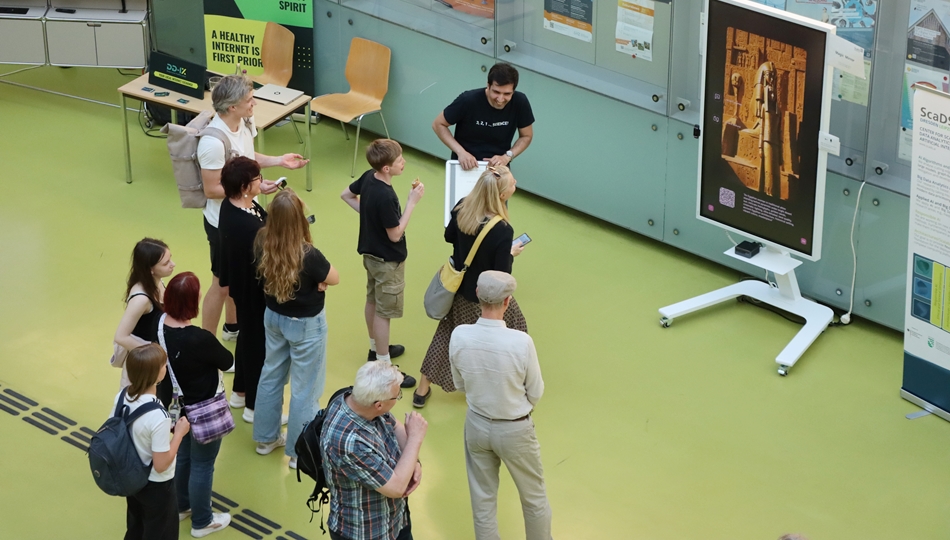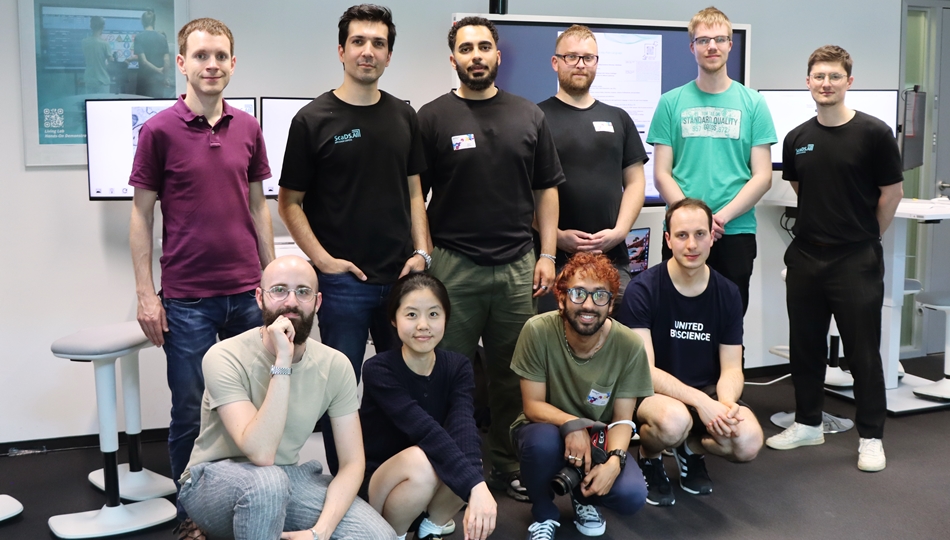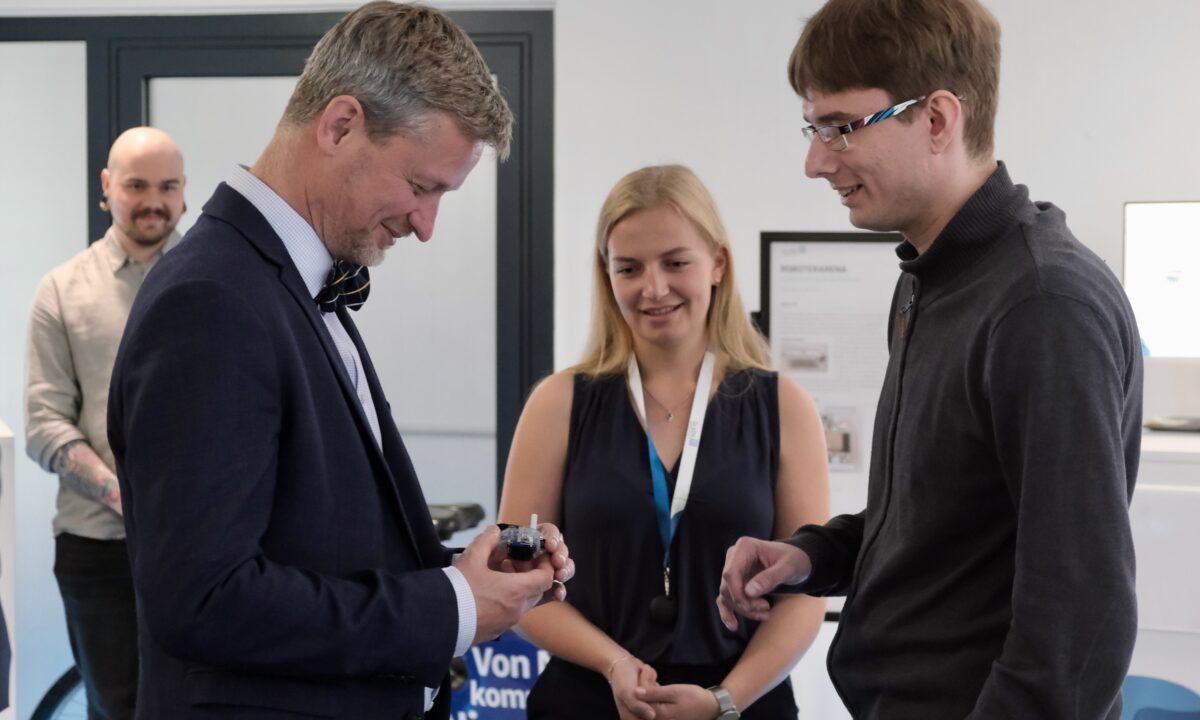
16. May 2023
Visit of State Secretary Dr. Andreas Handschuh and Prorector Prof. Jens-Karl Eilers in Leipzig

Dr. Andreas Handschuh, State Secretary at the Saxon State Ministry for Science, Culture and Tourism, and Prof. Jens-Karl Eilers, prorector of Leipzig University, visited the Living Lab in Leipzig to learn about current research results and transfer in the field of AI-technologies on May 16, 2023.
Data Processing, Pattern Recognition and Learning Capability
The ScaDS.AI Living Lab in Leipzig was happy to show how AI technology solves complex tasks in various social and economic areas. These AI-based applications have common features: Data processing, pattern recognition, learning, automation and optimization. AI efficiently analyzes large amounts of data, recognizes patterns, continuously improves through machine learning, automates tasks, and optimizes processes. These characteristics demonstrate the effectiveness of AI in various domains. The demonstrators shown provide insight into the latest research areas of the center.
The following demonstrators were shown:
Ant Algorithms with Decibots
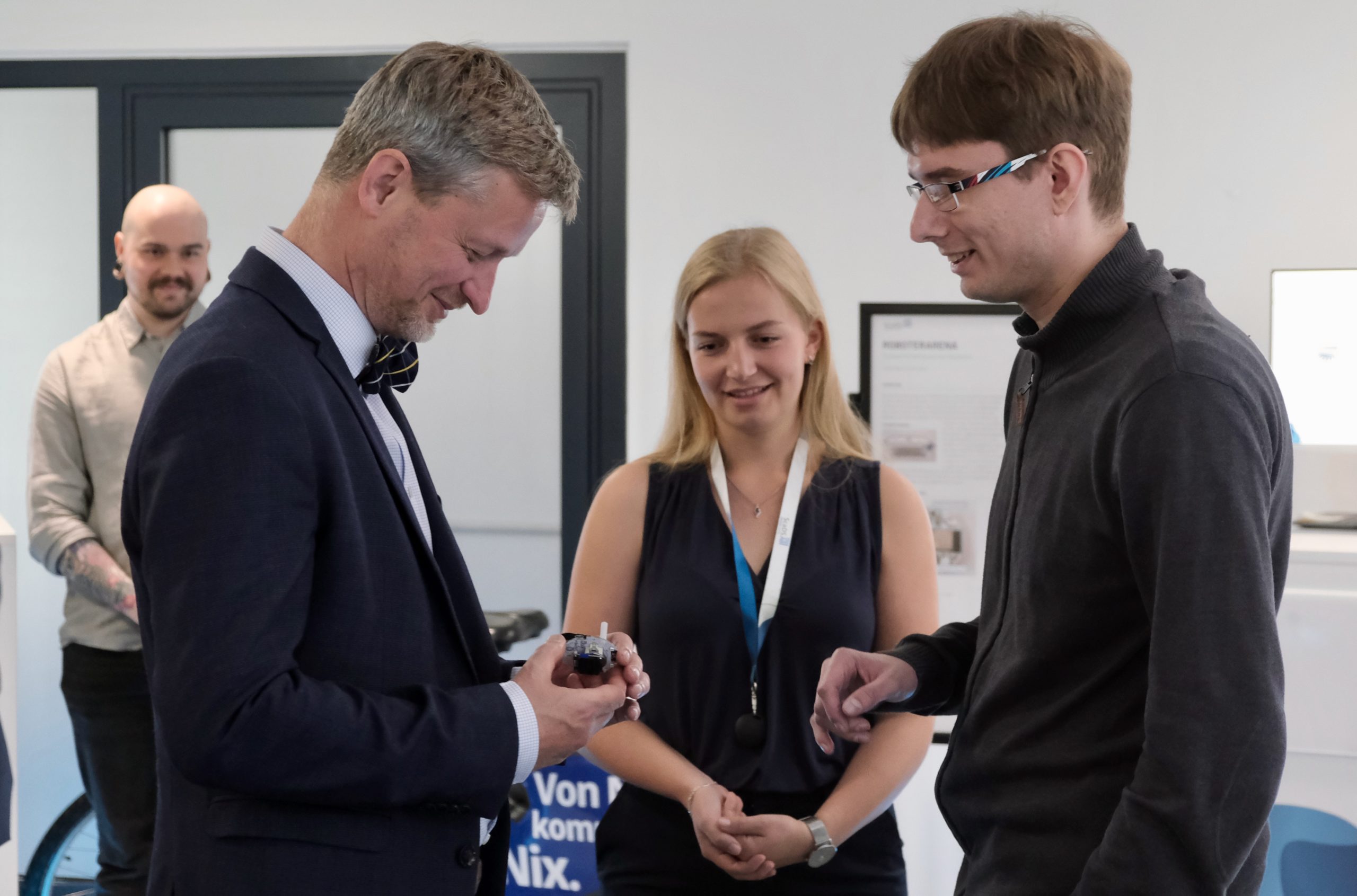
Miriam-Louise Carnot and Tobias Jagla showed Dr. Andreas Handschuh a Dezibot. With Dezibots, simply designed and cost efficient mini-robots, they are exploring the possibilities of intelligent swarm behavior.
Analysis of the borrowing behavior of bicycles by means of graphs
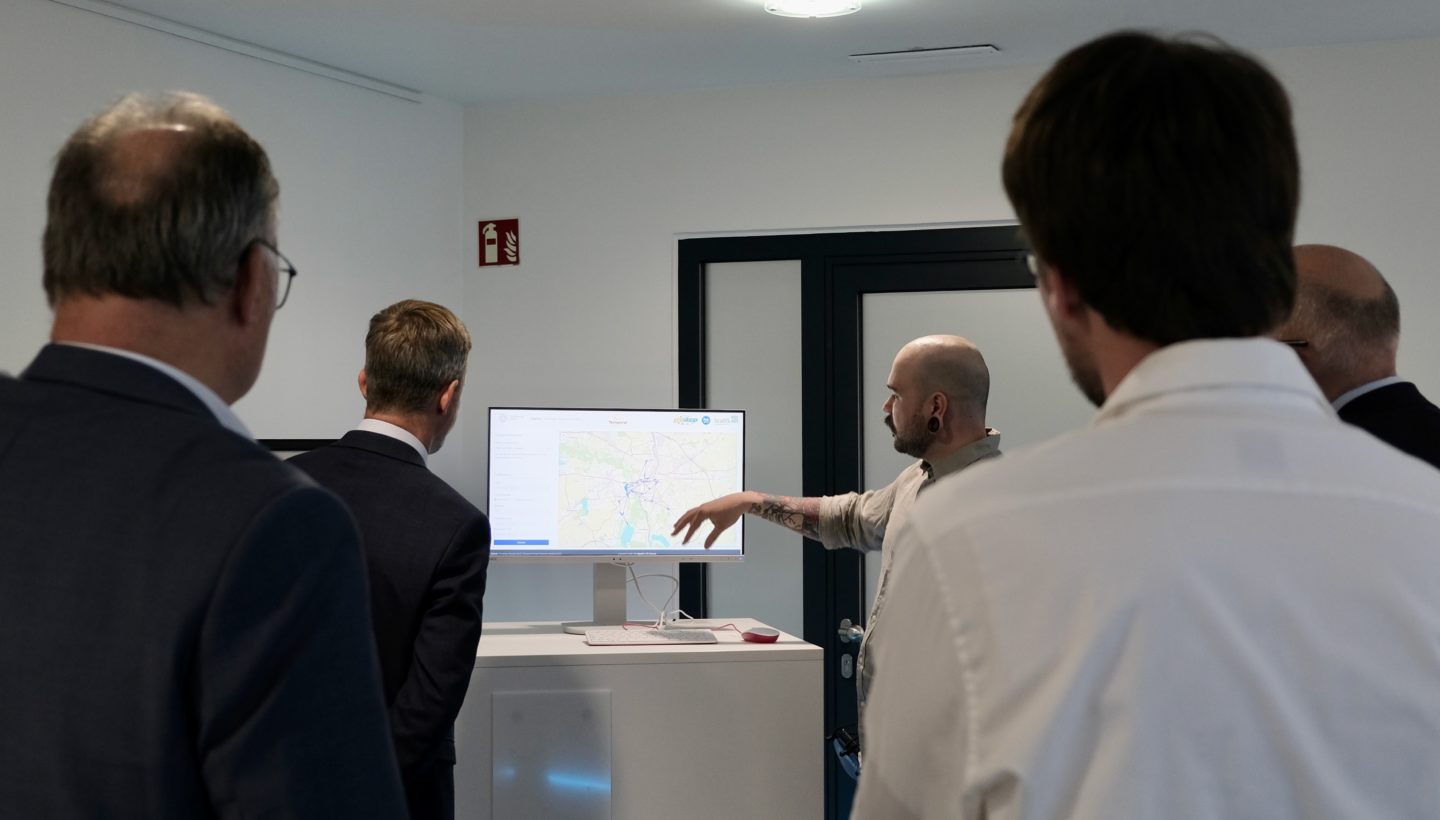
Daniel Obraczka demonstrated the concept of analyzing bicycle borrowing behavior using graphs. Data basis is the tental data of the bike sharing provider “nextbike” from the period July to September 2019 (approx. 240,000 rentals).
AI support for 3D printers
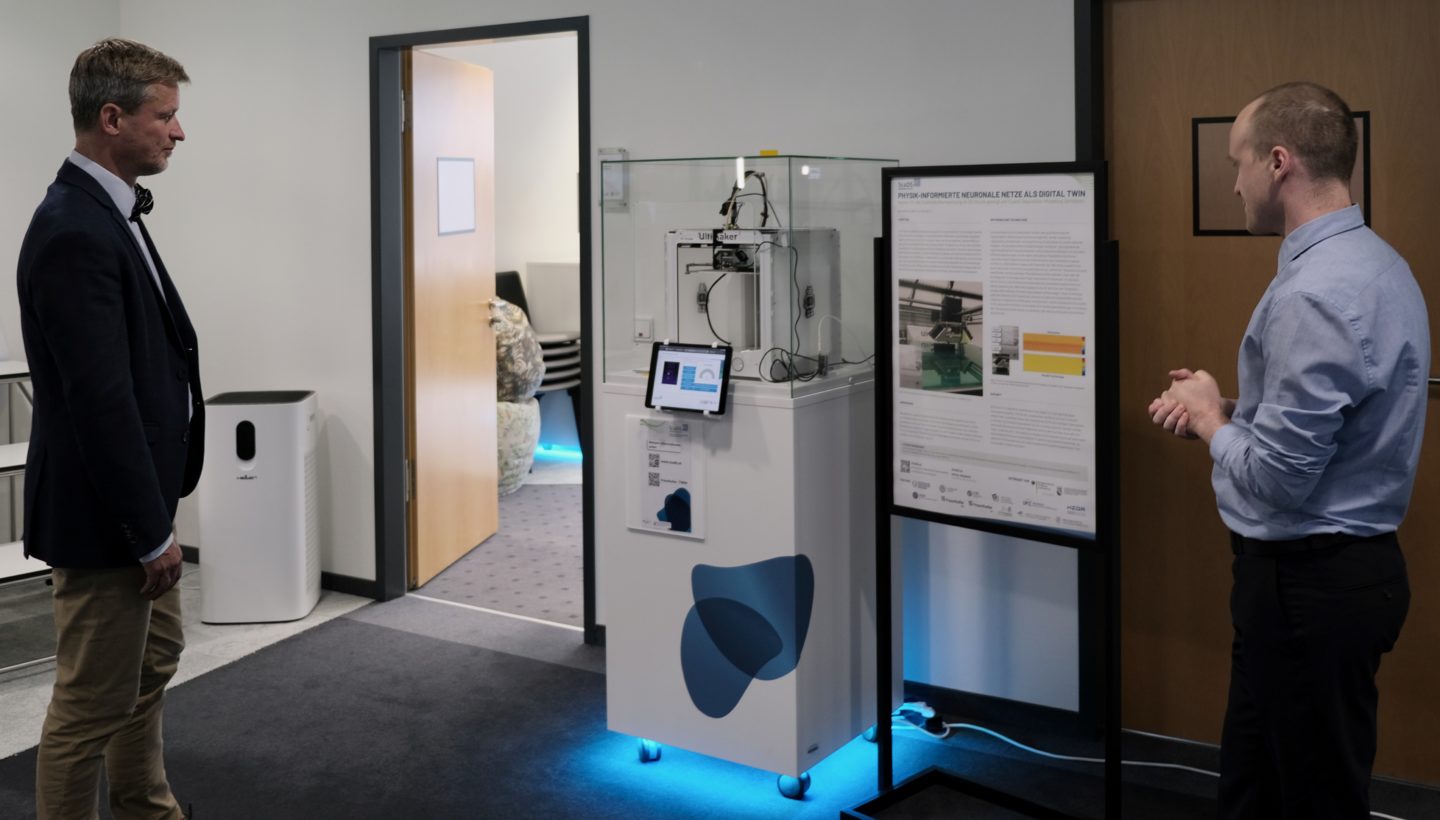
Oliver Welz provided insights into the possibilities of AI support for 3D printers.
Floor recognition for the Smart City
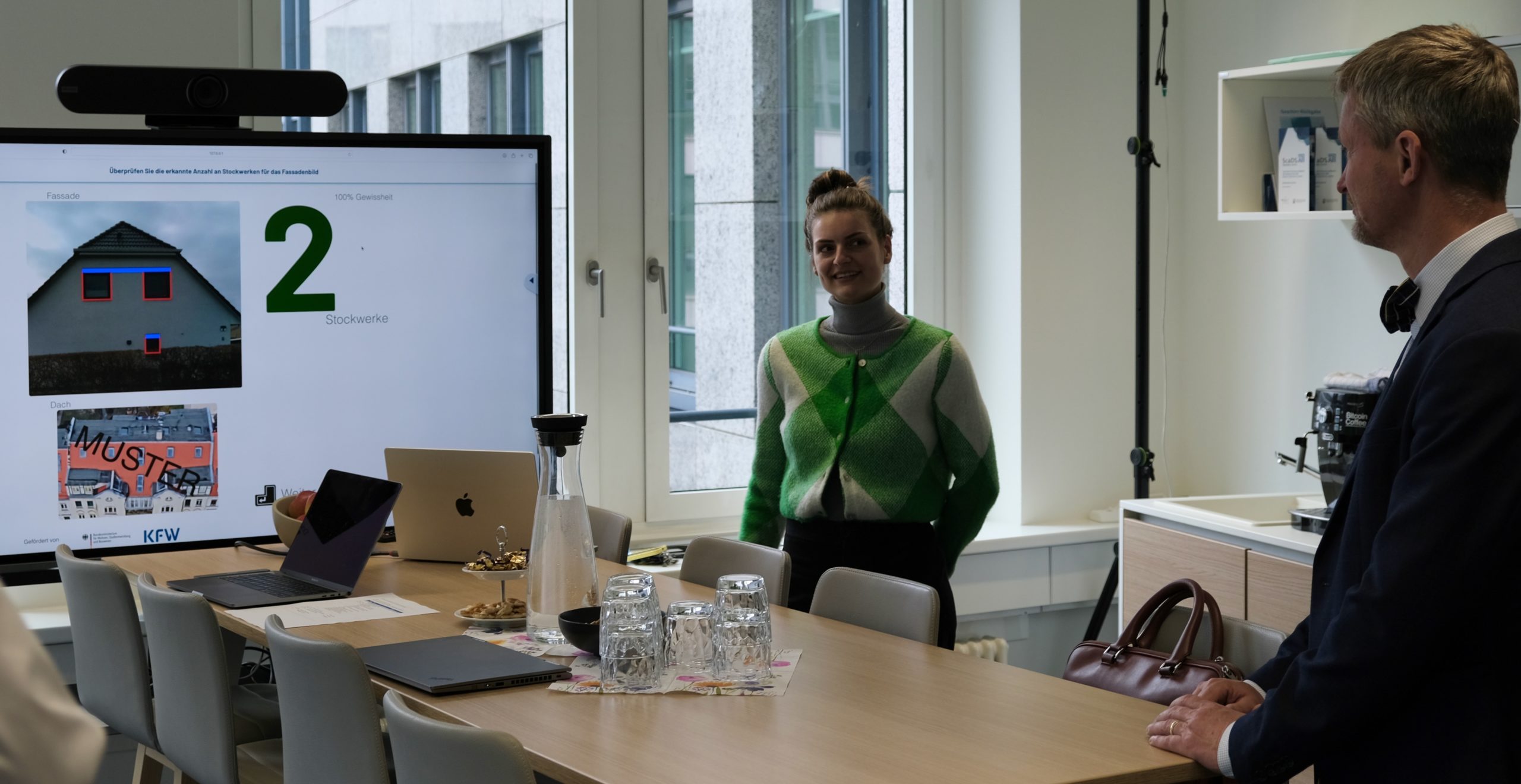
Aruscha Kramm, project member at Connected Urban Twins (CUT), presented the application of automatic floor recognition. At CUT, urban digital twins are generated to create intelligent and realistic images of cities. ScaDS.AI Dresden/Leipzig supports the project by testing AI models for sustainable urban development.
Automated handwriting recognition
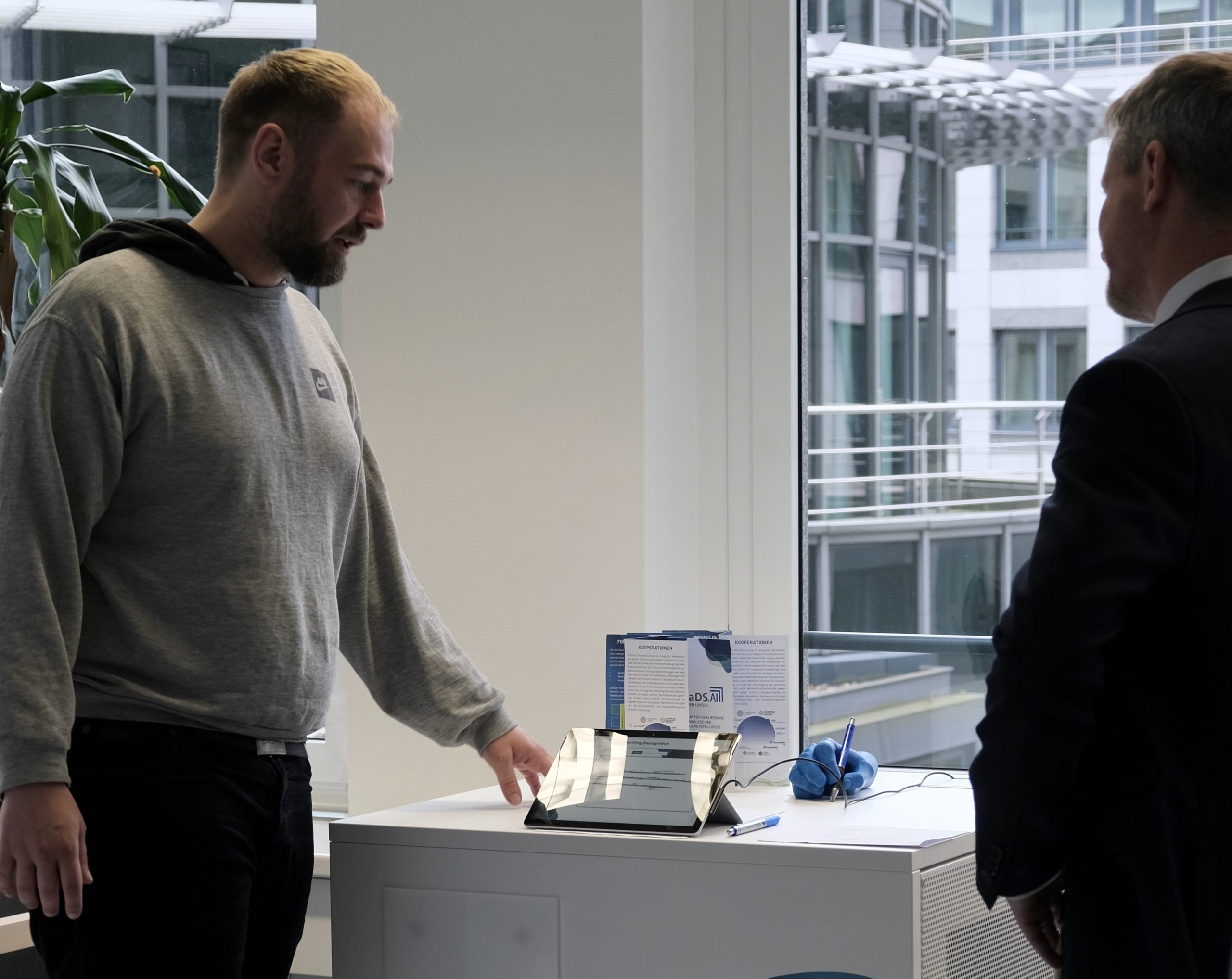
Johannes Häfner demonstrated how automatic recognition of handwritten text works.
Saxon State Ministry for Science, Culture and Tourism
The Saxon State Ministry of Science, Culture and Tourism is concerned with social life in the Free State of Saxony in the areas of higher education, science and research, among others. In addition, the ministry has an independent division for the topics of culture and tourism. Dr. Andreas Handschuh has been State Secretary at the Saxon State Ministry of Science, Culture and Tourism since July 1, 2022. He studied at Leipzig University, earned his doctorate and worked at the TU Chemnitz. He was initially Chancellor of TU Bergakademie Freiberg before being appointed Chancellor of TU Dresden in 2016.
ScaDS.AI Dresden/Leipzig is funded by the German Federal Ministry of Education and Research (BMBF) and the Saxon State Ministry for Science, Culture and Tourism (SMWK).


